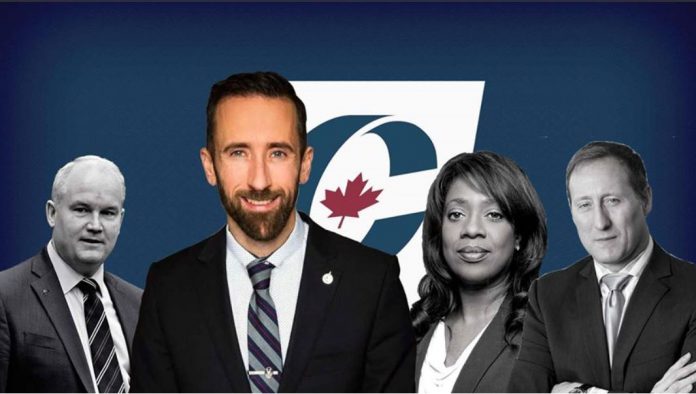In the current Conservative leadership race there has been a slight misunderstanding with how the votes are counted and points are rewarded that have led many to believe a candidate like Derek Sloan has no chance of winning. This is entirely not true.
Many believe that the leadership race will be boiling down to a pure raw vote popularity contest with the ranked ballot simply shifting votes from those who come in last place to their 2nd choices. In reality the voting system is far more complicated and actually helps a candidate like Sloan quite a bit.
The actual system is point based with each electoral riding being designated 100 points each, with the points being given to each candidate based on the percentage of the riding that they won.
The number of people who can vote in a riding of course depends on how many people hold memberships within the riding. Rural ridings in this case have higher value voters than bigger cities.
Being out in rural areas makes it less appealing to hold a membership because you are farther away from large Conservative events and often it seems already like a forgone conclusion that your riding will go Conservative in many parts of the country so it seems unnecessary to hold memberships.
Derek Sloan has the advantage in this case as he is most popular in rural ridings, the territories, and parts of Quebec, as he has the best French out of the two socially conservative candidates, the other being Leslyn Lewis.
Peter MacKay in theory may need 2000 votes in a Toronto riding just to come away with 40 points, but Sloan may only need 150 votes to get 80 points off in somewhere like the Yukon.
As an example, 35% of the vote going to MacKay translated into points may be similar to the points Sloan might get from just 18-20% of the vote. This is because of where those voters are located geographically.
For example as of July 27 when analyzing Google Trends’ stats on where different candidates are being searched over and at what rate, over the past 24 hours you will notice when studying a province like Ontario, that despite Sloan not being on top in Toronto, or Ottawa, he is often the vast majority of searches in smaller cities and towns.
Turnout of one’s supporters will be key to any candidate’s success in this race. In the 2017 leadership race roughly 54% of eligible voters voted and mailed in their ballots. Nearly half the party members did not vote. This is a challenge to candidates like Peter MacKay and Erin O’Toole. They appeal to the more moderate and old guard cohorts of the party membership base. This group within the party is far less likely to be actively engaged in the leadership race and may be voting for MacKay or O’Toole simply due to name recognition, or their affiliation with the Harper government. These sorts of voters tend to be more apathetic to the leadership race, as they are not as ideologically driven for a specific cause or issue. Contrast that with a new candidate like Derek that thrives on new membership sales and appeals to the grassroots of the party that are drawn to his strong Conservative platform. These new members and grassroots supporters are far more likely to vote in the election than the moderate old guard members that MacKay and O’Toole are courting, driving up a candidate like Derek’s numbers.
There are strong indications that Conservative voters are looking for someone fresh and more strongly conservative, as after the first French and English debates the poll that directly followed (currently the most recent non-partisan poll to date) showed O’Toole’s and MacKay’s polling numbers collapsing with undecided voters jumping from around 14% to 47%.
The jump in undecided voters is especially bad for MacKay and O’Toole as one would expect due to their high name recognition if someone really wanted to vote for them they would have decided by then, so the 47% of undecideds were likely most interested by the lesser known candidates, Sloan and Lewis.
In the aftermath Sloan had a lot of room to grow his support base, especially in rural areas due to his stances on firearm rights, oil and gas, Western alienation and a constitutional convention, among other issues that matter to those living away from the major cities.
As reported by Mountain Media Sloan’s social media presence on Facebook has grown by leaps and bounds, as with less ad spending than Peter MacKay and Erin O’Toole he has gained 36,014 new likes on his page from June 17 to July 28, with the latter two gaining only 1,387, and 7528 respectively. Leslyn Lewis has gained 13,211, which is a bit more then one third of the growth Derek has achieved.
Sloan winning would rely on him outpacing Lewis on the first ballot, and considering his significant advantages in provinces like Quebec, especially rural Quebec, due to his plans to lower immigration paired with his fast learning of French it likely won’t be that hard to pull ahead of her on the first ballot.
One interesting observation that may give us insight into what Sloan’s overall performance might be was made by JJ Mucullough in the aftermath of the 2017 leadership race.
Mccullough noted that Micheal Chong, the candidate most like MacKay, was predictably only popular in the most Liberal of ridings, outside of his own, but a socially conservative candidate like Brad Trost, most like Derek Sloan, could win ridings with no obvious pattern. This could indicate being an all around Conservative gives one a far better chance of mass appeal than being a dedicatedly red tory candidate like MacKay or even O’Toole.
The same thing occurred even more recently in the 2018 Ontario Progressive Conservative leadership race, where Tanya Granic Allen went from seemingly an unknown candidate, but through strong debate performances and support of the organization she was president of, Parents As First Educators (PAFE), she greatly outperformed expectations and is very likely the main reason Doug Ford, and not Christine Elliot, is the premier of Ontario right now.
Sloan is also running with PAFE’s support as well as other highly effective socially conservative lobby groups like Campaign Life Coalition, Real Women of Canada, and high praise from organizations like Canadians for Affordable Energy, so despite low caucus support he has racked up a lot of support from influential organizations.
Sloan, running in a similarly assertive style as Trost and Granic Allen, with equally noticeable debate performances as the latter, is essentially picking up the foundations they built and using them for his own campaign.
With all of the above factors working in his favour, Sloan does not just have the ability to place well or outperform expectations on the ballot before elimination. To the shock of many, Derek Sloan,the once underdog candidate, has the ability to win this leadership race.



















YES I hope Derek Sloan wins the Conservative Leadership Race! He’s the only one I will vote for! I agree with his platform, with his honesty and his visions for Canada! He’s the one with the most promising plan to save Canada! Vote for Derek Sloan Save Canada
YES I hope Derek Sloan wins the Conservative Leadership Race! He’s the only one I will vote for! I agree with his platform, with his honesty and his visions for Canada! He’s the one with the most promising plan to save Canada! Vote for Derek Sloan Save Canada
Yes voting for Derek Sloan
Hello, my husband and I live rurally in York Region ON. How much is the membership fee? Is it too late to become members? If not, what do we need to do to become members? We would like to vote for Derek Sloan.
Our prayers are with you Derek. Whatever God has planned!!